Granola is a popular snack amongst humans, often touted as a healthy option to munch on throughout the day. However, as dog owners, we must be mindful of what we feed our furry friends. We may be tempted to share our granola with our dogs, but is it safe for them to eat? The short answer is yes! Dogs can eat granola in moderation as long as it doesn’t include certain dangerous ingredients.

It’s crucial for dog owners to be aware of what foods are safe for their pets to consume. While dogs can tolerate some human foods, others can cause severe health problems.
Some foods that are harmless to humans can even be toxic to dogs. Therefore, it’s important always to check with a veterinarian before feeding any new food or treat.
As pet owners, it’s natural for us to want to share everything with our loyal companions. Still, sometimes it’s better not to take risks when it comes down to their health and well-being.
Defining Granola
Granola is typically made up of rolled oats mixed with various ingredients such as nuts and seeds or sweeteners like honey or maple syrup. It’s baked until crispy and then commonly served as a snack or breakfast cereal mixed in yogurt or milk. While granola may sound healthy because of its oats and other nutrient-dense ingredients like nuts and seeds, most store-bought granolas also contain high amounts of sugar and fat from added oils used in the baking process.
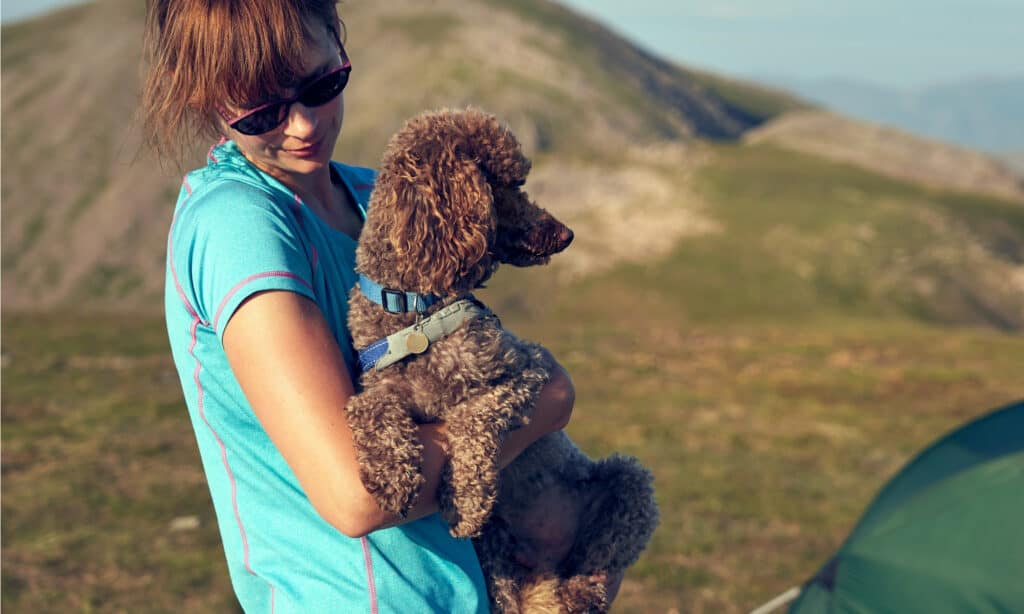
Is Granola Safe for Dogs?
Unfortunately, granola isn’t an ideal food choice when it comes down to feeding your furry friend. While some ingredients found in granola such as oats are beneficial for dogs’ diets in small portions, many other components make this snack unsuitable.
For instance, many store-bought granolas contain added sugars that can lead to obesity and other health problems. Additionally, some granolas contain raisins, which are toxic to dogs and can cause kidney failure.
The Risks of Feeding Dogs Granola
One of the most significant risks associated with feeding dogs granola is that it can cause gastrointestinal issues. The high fiber content in granola can be tough for dogs to digest, leading to stomach upset, diarrhea, or vomiting.
Moreover, some store-bought granolas may contain artificial sweeteners like xylitol that are incredibly harmful to dogs. Xylitol ingestion can lead to a sudden drop in blood sugar levels and potentially result in seizures or liver failure.
It’s always best to stick with dog-approved foods when feeding your pet. While granola may be tempting as a human snack option, it’s not worth putting your furry friend’s health at risk.
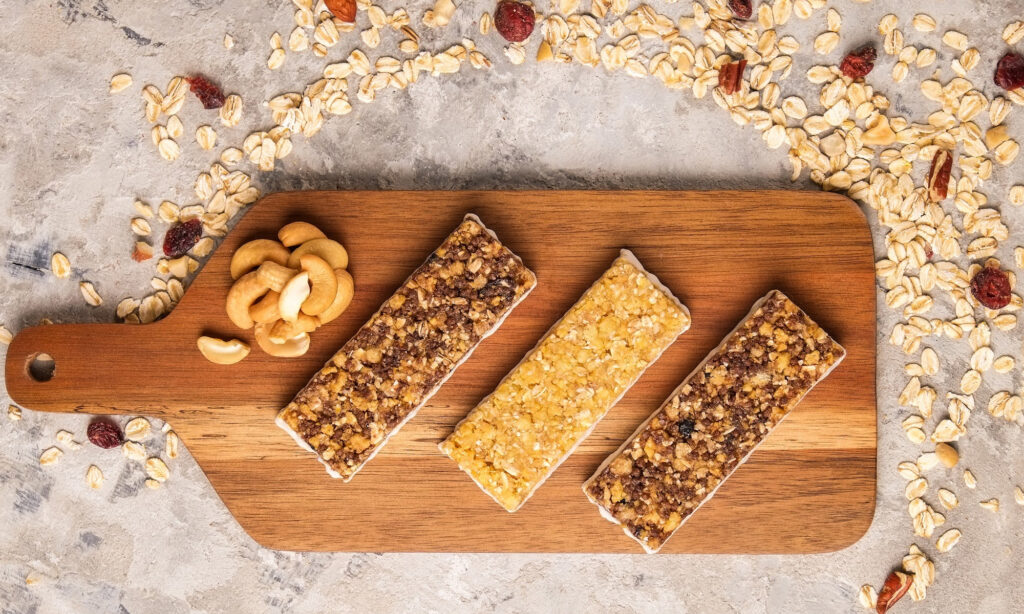
The Basics of Granola
Granola is a popular snack that is often consumed by humans who are looking for a simple, healthy option to keep them satisfied and energized throughout the day. This tasty snack was first created in the late 1800s by Dr. James Caleb Jackson, who was looking for an easy way to feed his patients at his health spa in New York.
The basic ingredients of granola include rolled oats, nuts, seeds, and dried fruit. However, there are many variations when it comes to granola recipes, so you may find additional ingredients such as honey or maple syrup added for extra sweetness.
Common Ingredients Found in Granola
While the main ingredients of granola are typically oats, nuts, seeds and dried fruit as mentioned earlier there are many different variations of granola that you might come across. Almonds, pecans or walnuts are some common nuts used in granola which add a crunchy texture along with healthy fats and proteins.
Seeds like flaxseed or chia seeds often appear in granolas providing an excellent source of fiber and omega-3 fatty acids. Dried fruit is another common ingredient found in granolas like raisins or cranberries providing natural sweetness along with vitamins and minerals.
Why Granola is Often Considered Healthy
Granola is often considered a healthy snack due to its high nutritional value. The oats found in most granolas provide complex carbohydrates that can help fuel your body throughout the day while also providing important nutrients like fiber and protein.
Additionally, nuts and seeds found within most recipes provide healthy fats that can help improve brain function along with protein necessary for various body functions such as muscle building and repair. adding dried fruit gives natural sweetness without any processed sugar which provides important vitamins and minerals giving sustained energy necessary for daily activities.
It’s easy to see why granola has become a popular snack choice for many people. With its simplicity, high nutritional value and versatility it’s no wonder many people enjoy this snack on a daily basis.
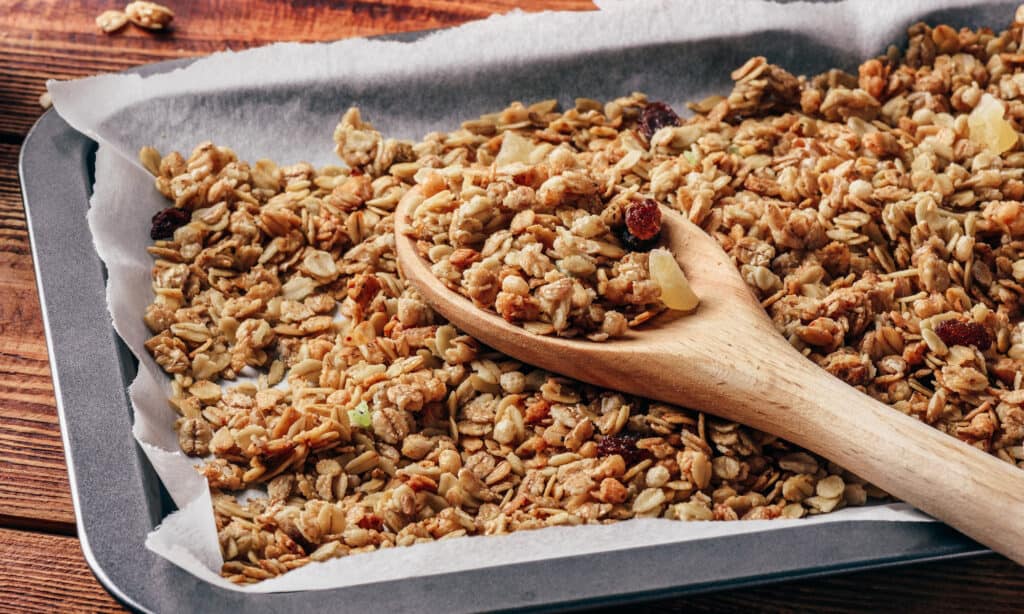
Can Dogs Eat Granola?
Is it Safe for Dogs to Consume Granola?
Granola is a snack that is typically made up of rolled oats, nuts, dried fruits, and sometimes honey or other sweeteners. While some of these ingredients can be healthy for dogs in moderation, granola itself is not an ideal snack for your furry friend. Granola often contains sugar and other sweeteners which are not good for dogs since they can upset their digestive system and cause weight gain.
In addition to the high levels of sugar found in granola, it may also contain raisins or chocolate chips which can be toxic to dogs. Raisins contain a toxin that can lead to kidney failure and chocolate contains theobromine which can cause vomiting, diarrhea, and even death in severe cases.
Potential Risks Associated with Feeding Dogs Granola
Feeding your dog too much granola or any other human food can lead to digestive problems such as vomiting or diarrhea. Furthermore, the high-calorie content of granola means that it should only be given in small amounts as an occasional treat.
Overfeeding your dog with any type of food can lead to weight gain which predisposes them to numerous health problems such as diabetes, heart disease, arthritis and others. Another potential risk associated with feeding dogs granola is choking or intestinal blockage due to the hard texture of some of its ingredients.
Constipation may also occur if too much fiber is consumed by your dog. If you still want to give your dog some granola occasionally or as part of their diet you should first check with a veterinarian who will help determine whether this treat would be appropriate for your furry friend’s dietary needs.
While small amounts of plain oatmeal may occasionally be given safely as a treat for dogs that have no known food allergies, granola is not a recommended snack for dogs. Feeding your furry friend human snacks such as granola can potentially cause health complications like obesity, diabetes and heart disease. So, it is best to stick with dog-friendly snacks when rewarding your pet’s good behavior or simply showing them love.
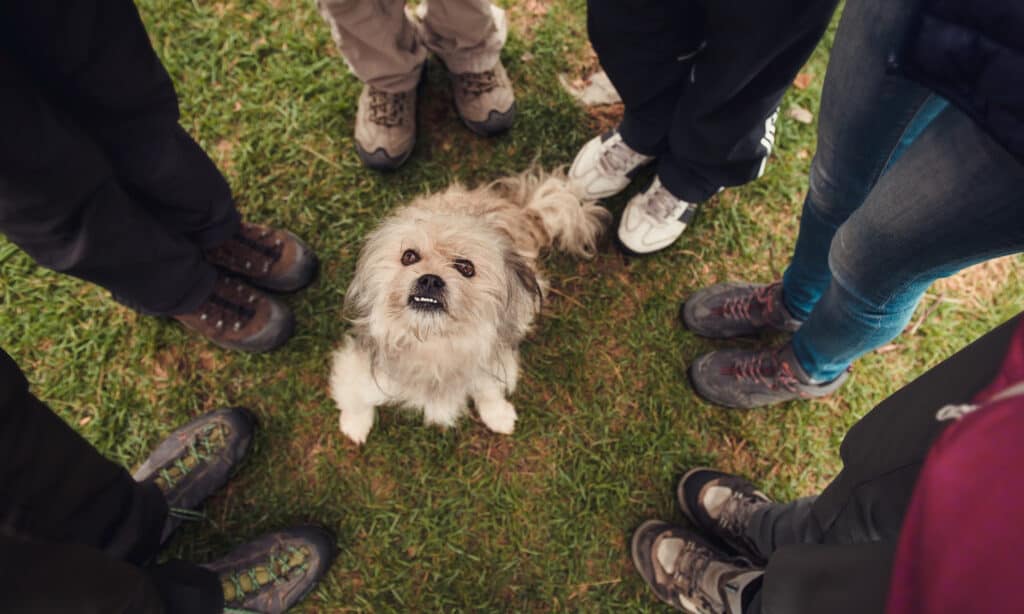
Health Benefits of Granola for Dogs
Not All Granola is Created Equal
Before discussing the potential health benefits of feeding granola to dogs, it is important to note that not all types of granola are created equal. Many store-bought granolas contain high levels of sugar, salt and other additives that can be harmful to your pet’s health. It is important to carefully read the nutritional labels before purchasing any type of granola for your dog.
A Source of Fiber
One potential benefit of feeding small amounts of plain, unsweetened granola to dogs is its fiber content. Fiber helps promote healthy digestion and can help prevent constipation in dogs. If you choose to feed your dog small amounts of granola on occasion, be sure to monitor their bowel movements and make sure they do not experience any adverse effects.
A Protein Boost
Many types of granolas contain nuts and seeds which are a good source of protein for dogs. Protein is essential for maintaining healthy muscles and tissue growth in canines. If you are looking for an added protein boost in your dog’s diet, plain nut-based granolas can be a healthy addition when fed in moderation.
Vitamins & Minerals
Some types of fruits or berries are often found in granolas such as raisins or cranberries that may offer some nutritional value for dogs due to their vitamin C content. However, it’s important to remember that some fruits may be toxic or harmful to your dog such as grapes or chocolate-covered raisins so always check with your vet before introducing new foods.
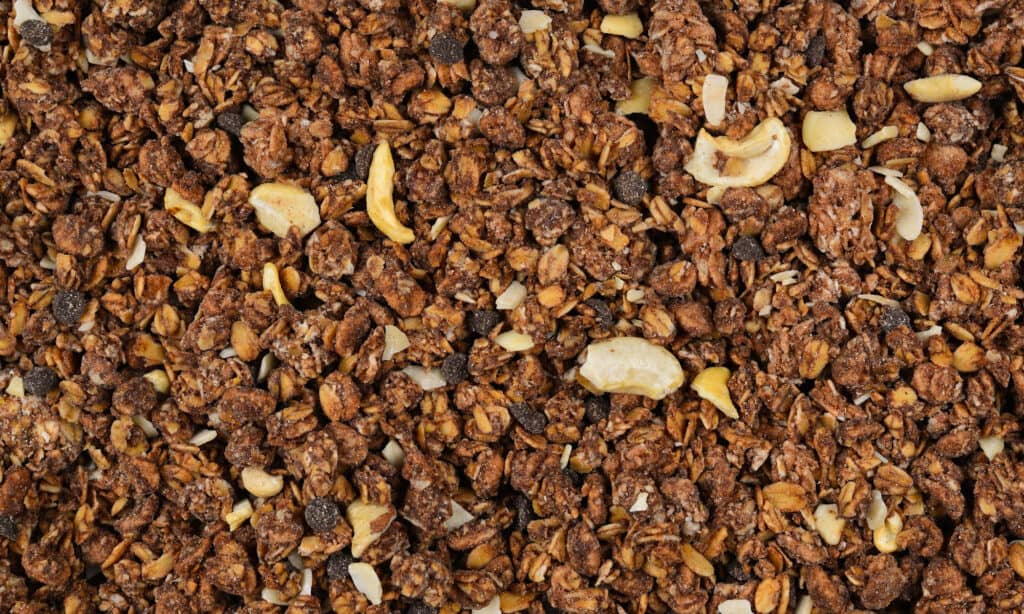
Moderation is Key!
Feeding too much human food, including granola, can lead to digestive issues such as vomiting and diarrhea in dogs. It’s important when feeding any human food item (not just pet food) to pets that it is done in moderation. When feeding granola to your dog, start with small amounts and monitor their reaction.
If they seem to tolerate it well, you can continue to offer it as an occasional treat. If you want to feed your dog granola every now and then, choose a plain and unsweetened variety that is free from harmful additives.
Remember that moderation is key when feeding any human food item to dogs, including granola. If you are unsure about the nutritional content of any human food item or how much to feed your dog, always consult with a veterinarian first for professional advice on nutrition and safe feeding practices.
Alternatives to Granola for Dogs
Safe and Healthy Snack Options for Your Furry Friend
While granola may not be the best snack option for your dog, there are plenty of alternatives that are safe and healthy. When choosing snacks for your pup, it’s important to keep in mind their nutritional needs and any dietary restrictions they may have. Here are some dog-friendly snack options that will keep tails wagging:
- Fruits and Vegetables – Fruits and veggies are a great snack option for dogs because they are low in calories and high in nutrients. Some tasty options include sliced apples (without seeds), baby carrots, green beans, bananas, blueberries, and watermelon. Just be sure to remove any seeds or pits that could be harmful to your pup.
- Peanut Butter Treats – Most dogs love peanut butter, so why not use it to make some homemade treats? You can make simple peanut butter balls by mixing together peanut butter and rolled oats. For an extra special treat, try making frozen peanut butter cups by filling a muffin tin with melted peanut butter and freezing until hard.
- Bone Broth Ice Cubes – Bone broth is a great source of vitamins, minerals, and collagen for dogs. To make bone broth ice cubes, simply simmer chicken or beef bones in water with some carrots, celery, garlic, and herbs until the broth is rich in flavor.
- Dog-Friendly Baked Goods – If you love baking, why not whip up some dog-friendly treats? There are plenty of recipes online that use ingredients like pumpkin puree or sweet potato as the base. Just be sure to avoid using any ingredients that could be harmful to your pup such as chocolate or xylitol.
- Rawhide Alternatives – If your dog loves to chew, there are plenty of safe alternatives to rawhide. You can try giving them a bully stick, an antler, or a Kong toy filled with peanut butter.
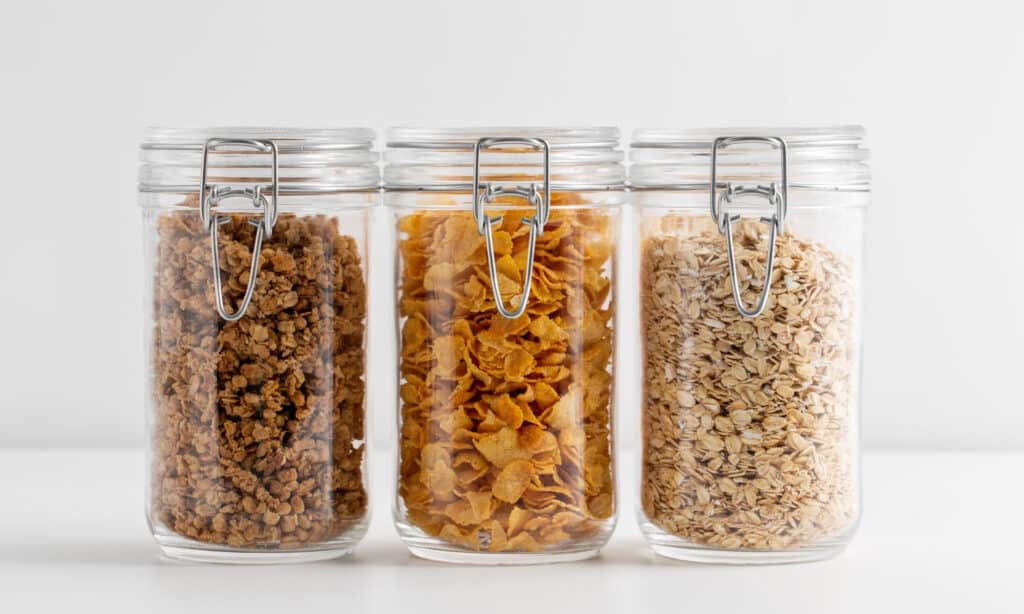
Making Your Own Dog-Friendly Snacks at Home
One of the best things about making your own dog-friendly snacks is that you know exactly what goes into them. You can avoid any harmful additives or preservatives and tailor the ingredients to your pup’s taste preferences. Here are some simple recipes for homemade dog snacks:
Pumpkin Peanut Butter Treats
Ingredients:
- 1 cup canned pumpkin puree
- ½ cup natural peanut butter (no added sugar or salt)
- 1 egg
- 2 cups whole wheat flour
Instructions:
- Preheat oven to 350 degrees F.
- In a large mixing bowl, combine pumpkin puree, peanut butter, and egg.
- Gradually stir in the whole wheat flour until a dough forms.
- Roll out the dough on a floured surface and cut into desired shapes.
- Place on a baking sheet lined with parchment paper and bake for 20-25 minutes or until golden brown.
Banana Blueberry Bites
Ingredients:
- 1 ripe banana
- ½ cup blueberries
- 1 cup rolled oats
Instructions:
- Preheat oven to 350 degrees F.
- In a blender or food processor, blend together banana and blueberries until smooth.
- Add rolled oats and pulse until combined.
- Scoop tablespoon-sized portions onto a baking sheet lined with parchment paper.
- Bake for approximately 10 minutes or until firm.
Beef Jerky Strips
Ingredients:
- 1 lb. lean beef
- ¼ cup soy sauce
- 1 tsp. garlic powder
Instructions:
- Preheat oven to 200 degrees F.
- Slice the beef into thin strips.
- In a mixing bowl, combine soy sauce and garlic powder.
- Dip each strip of beef into the mixture and place on a baking sheet lined with parchment paper.
- Bake for approximately 2 hours or until jerky is dry and chewy.
Feeding your dog healthy snacks doesn’t have to be complicated or expensive.
With a little bit of creativity, you can make delicious treats that will keep your furry friend happy and healthy. Always consult with your vet before introducing new foods into your dog’s diet, especially if they have any health issues or allergies.

Conclusion
After reading this article, you may be wondering if it’s safe to give your dog some granola. While granola is a favorite snack for many humans, it’s important to remember that not all human foods are safe for dogs.
While these ingredients can provide some nutritional benefits for dogs, they can also pose health risks. In the second section of this article, we explored whether or not dogs can eat granola.
While some types of granola may be safe for dogs to eat in small amounts as an occasional treat, others are best avoided altogether. Dogs have different dietary requirements than humans and their digestive systems may not be able to process certain ingredients found in granola.
While it may be tempting to share your favorite snacks with your furry friend, it’s important to remember that not all human foods are safe for dogs. Granola contains several ingredients that can pose health risks or cause digestive upset in our canine companions.
In general, it’s always a good idea to stick with dog-friendly snacks that are specifically designed for our four-legged friends. With so many safe and healthy treat options available, there’s no need to take unnecessary risks with our dogs’ health and well-being.
~Lindsie
